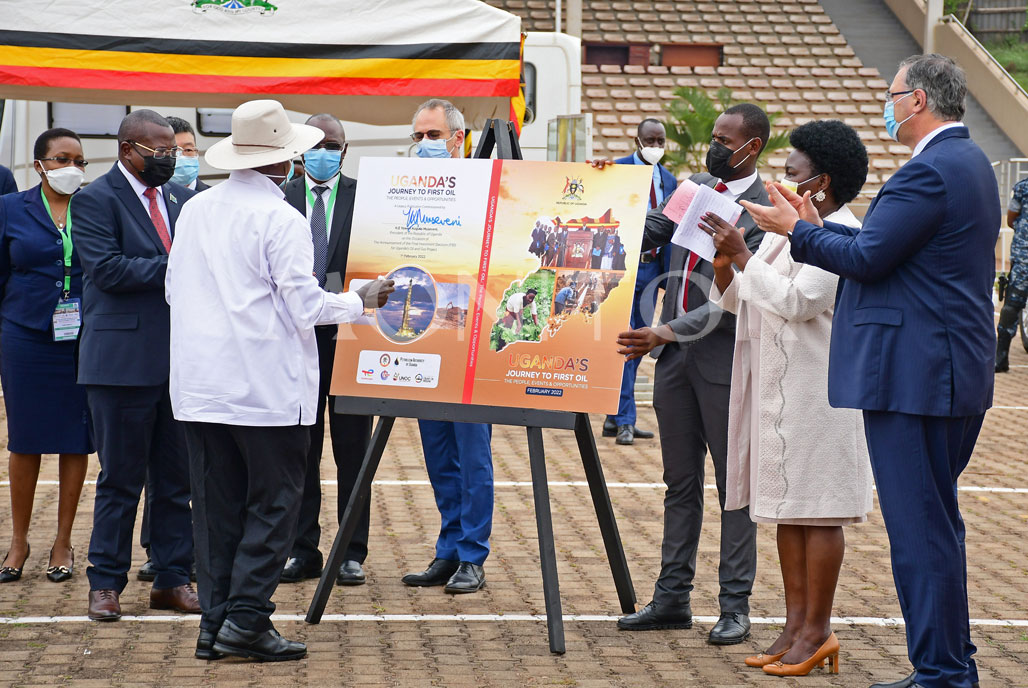Prime
We wasted time chasing the best oil deal; time to make this a good one

Author: Daniel K Kalinaki. PHOTO/FILE.
What you need to know:
- The objective in trying to hold out for the best offer from the oil and gas majors was noble but we wasted too much time holding out for a great deal when a good deal could have taken us a long way down the road. But all that is now behind us and it is time to work. The experts are coming; we should at least look busy.
The story has been passed down several times. It might have some tiles missing and layers of paint added but the structure – and significance – remain intact. It happened a few years ago and involved discussions over building a small crude oil refinery in Uganda.
After several meetings, officials representing the government and a foreign consortium had hammered out what was beginning to look like a win-win deal. A meeting was called to discuss next steps and the investor’s team flew in for the penultimate talks.
They were surprised to find a new face chairing the meeting. Mr New Face said he had been on leave and had, therefore, missed previous discussions. But he had read the drafts and did not agree with some of the clauses. He directed a change in the meeting agenda to renegotiate those clauses.
The investors shifted uncomfortably in their seats. Those positions had been jointly agreed upon, communicated to HQ and approved. They had come to discuss next steps, not reopen negotiations. Mr New Face was adamant. Nothing would proceed without his say-so.
The investors conferred, apologised for not being prepared for the renegotiation, and asked for time to go back and prepare. The meeting ended. They never returned.
There were other concerns about the viability of the refinery project and it is possible that other credible punters could have been found to pick up the slack but that arbitrary change of rules ended our plans to have a local refinery, at least for now, but possibly for good.
Which is a shame. One issue on which this column agreed with and fully supported President Museveni was on building a refinery to process crude oil locally.
It would slightly reduce the amount exported by the oil companies and delay their payback period a bit longer but it would unlock a diverse range of value, including reducing the fuel tanker and cartel menace while fuelling new local industries in plastics and fertiliser, among others.
As often is the case, the problem came down to execution and slow decision making. The announcement of the Final Investment Decision this week represents a major step forward to finally getting Uganda’s crude oil out of the ground before it becomes economically unfeasible to do so.
It should also serve as a national reminder that great is often the enemy of good. Despite a few side-eye prompting possessive references to what is a national asset, Mr Museveni has largely been right in demanding a fair share of the oil benefits to trickle down to locals.
Did this have to take over a decade? Definitely not. Did holding out give us a better deal than we would have gotten if we had closed within a year or two? Highly debatable.
The upside of the delay is that it allowed more local firms to upskill and tie up partnerships to allow them to participate in the sector – although the failure to tighten the definition of local companies left a large loophole. It also bought us time to put in place badly needed infrastructure and train more locals in skills tailored for the industry.
The downside is that advances in technology, particularly renewable energy, and growing concerns about fossil fuels and their contribution to climate change means that in the end we ended up taking whatever deal was offered under the prevailing circumstances. A delay of a few more months or years could potentially have been calamitous.
This indecision is a national disease. And it is debilitating. We spend too much time talking about what needs to be done, drawing up strategies which need to be gender mainstreamed at workshops where capacities are built and alignment done to SDGs and NDP III but are notoriously slow to execute.
This malaise trickles into every facet of life, from delays in the implementation of national projects, to the way waitresses drag their feet across bars and restaurant floors. You can get away with this culture of being “as-if, as-if” or “there-there” if you are planting cassava and waiting for a harvest four months down the road.
If you bring it to a negotiation with a multinational whose balance sheet is several multiples of your national GDP you get pushed and punished.
The announcement of FDI will unlock investment and bring world-class talent and corporate cultures into the country. Local firms and talent must quickly decouple themselves from the national low-gear ratio mode and run at pace if they are to avoid getting overrun.
The objective in trying to hold out for the best offer from the oil and gas majors was noble but we wasted too much time holding out for a great deal when a good deal could have taken us a long way down the road. But all that is now behind us and it is time to work. The experts are coming; we should at least look busy.
Mr Kalinaki is a journalist and poor man’s freedom fighter.
Twitter: @Kalinaki




